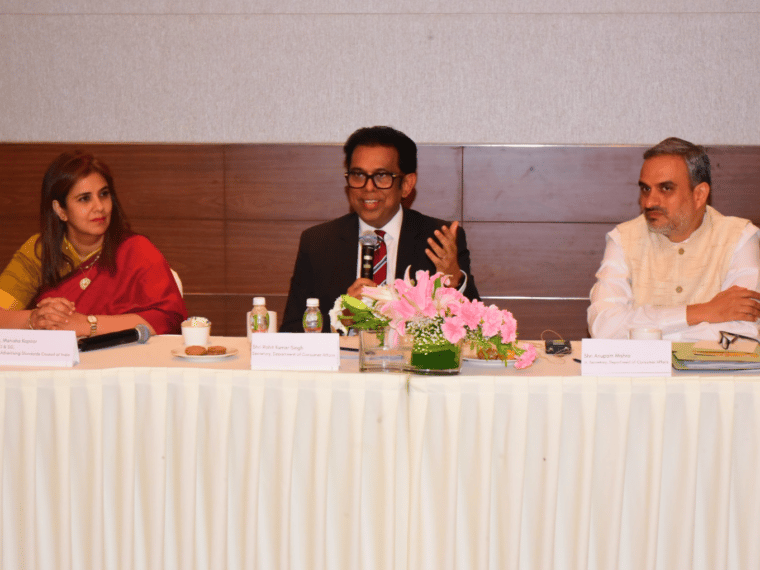
Unless there is express consent from the consumers, they should not be forced to do any extra shopping behaviour: Consumer Affairs Secy, Rohit Singh
Have asked ecommerce players to create a self-regulatory framework to help curb dark patterns, in association with ASCI and some law firms: Singh
He added that the statutes governing consumer protection are very wide and dark patterns fall under unfair trade practices
The government has asked the ecommerce industry to create a self-regulatory framework to stop ‘dark patterns’. The Department of Consumer Affairs, along with the Advertising Standards Council of India (ASCI) and industry stakeholders, held a consultation in Mumbai on Tuesday (June 13).
The meeting was attended by top executives from stakeholders including Flipkart, Zomato, Amazon, Meta, Google, MakeMyTrip, Yatra, Snapdeal, Uber, Ola, BigBasket, Meesho, PharmEasy, Tata 1mg and Shiprocket.
Dark patterns include a range of manipulative practices such as drip pricing, disguised advertising, bait and click, choice manipulation, false urgency and privacy concerns.
At the stakeholder meeting, Singh expressed concern on behalf of the consumer affairs department over the proliferation of dark patterns on ecommerce platforms and other modes such as online travel aggregators (OTAs).
The department secretary added that consumers should be made aware of what they are signing up for and also should be able to get out of the same.
“Unless there is express consent from the consumers, they should not be forced to do any extra shopping behaviour; this is called dark patterns. To prevent that, the consumer and the seller both have to be aware and educated,” Singh further told reporters on the outskirts of the stakeholder meeting.
Singh added that he has asked ecommerce players to create a self-regulatory framework to help curb dark patterns, in association with the ASCI and some law firms.
“Regulators first need to spread awareness and then take action if the ecommerce platforms fail to comply,” he added. Singh added that if dark practices continue even after the creation of a self-regulatory framework, the government may consider intervening with regulations on the matter. Singh added that the self-regulatory framework should be ready in the next two months.
Singh added that the statutes governing consumer protection are very wide and dark patterns do fall under unfair trade practices.
He also said that since the consumers’ trust in the brand gets the ecommerce companies customers, they can’t shy away from responsibility and will have to share some liability. The government has also been exploring ways to make ecommerce companies share some liability in case of fraud. Last November, the Centre also unveiled a framework to curb fake reviews on ecommerce websites.
To be sure, the current ecommerce companies, dictated by the IT Act, 2000, are protected from liability under Section 79.
ASCI’s CEO and Secretary General Manisha Kapoor also said the ad industry’s self-regulatory body will be coming out with its guidelines on dark patterns very soon.
However, Kapoor added that it is a wider subject concerning areas beyond advertising, like transactions and subscriptions. “Many (ecommerce companies) say we are marketplaces and do not have full controls, but I think, we are going to push back on that,” she clarified.
The ecommerce marketplaces such as Flipkart and Amazon continue to enjoy the insulation, despite instances of fraud and mis-selling prevalent on such platforms.































 Ad-lite browsing experience
Ad-lite browsing experience